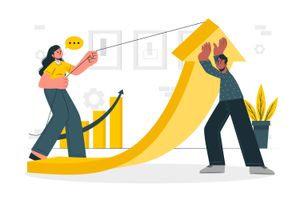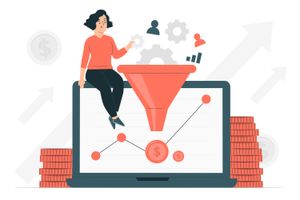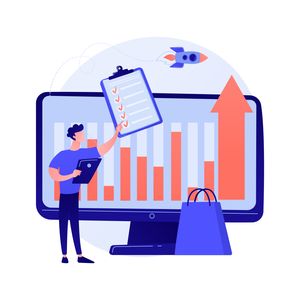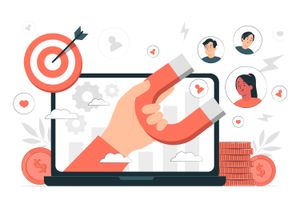The B2B sales landscape has been rapidly evolving over the past few years, making it more important than ever for businesses to stay ahead of the curve. This constant change is driven by a combination of factors, including the rise of digital technology, changing buyer behavior, and an increasingly competitive market.
In this blog post, we'll explore the most significant b2b sales trends in 2023 that are shaping the future of the industry. Let's dive in!
Trend #1: Increased Focus on Customer Experience
In today's highly competitive market, customer experience has become a key differentiator for B2B sales success. According to a Walker study, after the year 2020, customer experience overtook price and product as the key brand differentiator.
Technology plays a significant role in enhancing customer experience. Tools like StoryXpress allow businesses to create personalized video content that speaks directly to their target audience, helping them stand out in a crowded market.
Trend #2: Data-driven Decision-making
As the volume of data available to businesses continues to grow exponentially, leveraging data analytics has become essential for driving sales strategy.
A study by McKinsey found that companies that use data-driven sales processes are up to 6% more profitable and 7% more efficient than their competitors.
By integrating artificial intelligence (AI) and machine learning (ML) in B2B sales, businesses can analyze large datasets to identify patterns, trends, and insights that inform their sales and marketing strategies.
They can also use these tools to gather data on their competitors' strategies while avoiding 429 too many requests errors by implementing rate limiting, rotating IP addresses, and using ethical web scraping practices.
For example, AI-powered tools like Vainu can help sales teams prioritize leads based on data-driven insights, resulting in a more targeted and efficient sales process.
Trend #3: Social Selling and the Power of LinkedIn
Social media platforms have become a powerful tool for B2B sales, with LinkedIn leading the charge. According to LinkedIn, 76% of B2B buyers prefer to work with companies recommended by their professional network, making a strong presence on the platform essential.
A successful example of this is Adobe's #MakeItAnExperience campaign on LinkedIn, which effectively showcased their expertise and engaged potential clients through high-quality content and thought leadership.
Trend #4: The Shift to Remote Selling and Virtual Sales Teams
The COVID-19 pandemic has accelerated the shift to remote selling, with sales teams now relying heavily on virtual meetings and digital tools. According to Gartner, 80% of B2B sales interactions between suppliers and buyers will occur in digital channels by 2025.
Remote selling offers several benefits for B2B businesses, including cost savings, increased efficiency, and a wider talent pool. To excel in remote sales, businesses should invest in the right tools (e.g., Zoom, HubSpot, and Slack) and establish clear processes for communication and collaboration.
Trend #5: Content Marketing and Thought Leadership
High-quality, helpful content is crucial for B2B sales success. A study by the Content Marketing Institute revealed that 91% of B2B marketers use content marketing to reach their customers.
For example, HubSpot's extensive library of resources, including blog posts, e-books, and webinars, demonstrates its expertise in inbound marketing and helps it attract and nurture leads. You can use free book publishing companies to create a credible lead magnet.
Trend #6: Sales Enablement and Training
Sales enablement plays a critical role in B2B sales success, ensuring that sales teams have the right tools, resources, and training to effectively engage with prospects and close deals.
Conclusion
The future of B2B sales will be shaped by an increased focus on customer experience, data-driven decision-making, social selling, remote selling, content marketing, and sales enablement.
By adapting to these trends and staying informed about the latest developments in the industry, businesses can position themselves for success in the ever-changing world of B2B sales.
As someone with over 12 years of experience in content writing for SaaS B2B businesses, I can attest to the importance of staying agile and responsive to the shifting landscape.
The key is to never lose sight of the human aspect of B2B sales. Ultimately, it is empathy, understanding, and genuine connection that will set your business apart and drive long-term success.
Stay informed, keep learning, and embrace the future of B2B strategic sales with confidence.


 Free Screen Recorder for Chrome
Free Screen Recorder for Chrome












